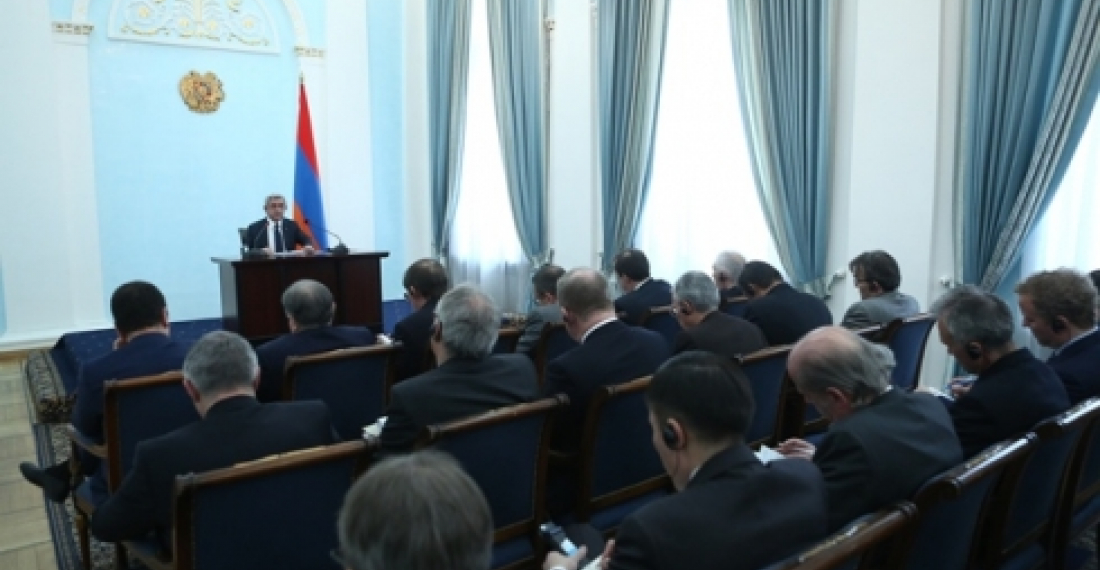Armenian President Serzh Sargsyan told diplomats in Yerevan on Monday that Armenia will recognise the independence of Nagorno-Karabakh if current military operations in and around the territory "continue and grow larger by scale".President Sargsyan also said that he had instructed his foreign minister to prepare a treaty for mutual defence and security with Nagorno-Karabakh.
The Armenian news agency Armenpress said that the President addressed the issue whilst speaking to the Ambassaodrs of OSCE member states accredited to Armenia. Sargsyan said that the violence of the last days was the most serious breach of the 1994 cease fire and constituted a threat to peace not only for the region but for the whole of Europe.
Commonspace.eu political editor said in a comment that for the distant observer the Armenian President's threat to recognise Nagorno-Karabakh or sign a security agreement with it may sound a bit hollow, given that Armenia already provides a lot of the military and security cover that is required by the self-declared Nagorno-Karabakh Republic. However for those who follow the issue more closely the threat to recognise Nagorno-Karabakh is meant to send a veiled message to the mediators of the conflict that Armenia may not be ready to continue negotiating under the same conditions as before. Given the fact that Armenia is a member of the CSTO - the Russia led military alliance,a formal security agreement with Karabakh will also have implications for that organisation. So whilst the threat to recognise Karabakh may sound only symbolic, further up the line it may introduce new complications which many in the international community will find undesirable.
source: commonspace.eu with Armenpress
photo: President Serzh Sargsyan addressing Ambassadors from the OSCE member states in Yerevan on 4 April 2016 (picture courtesy of the press service of the president of Armenia






